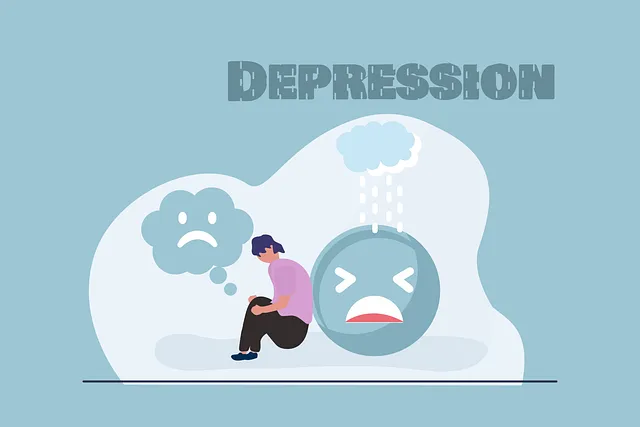Resilience, as per the RFM (Risk, Resilience, and Strengths or Reach, Frequency, and Motivation) Model, is a key component of mental wellness, cultivated by identifying risks, vulnerabilities, and personal strengths. Kaiser Permanente behavioral health phone number in Castle Rock uses this framework to improve patient mental wellness through tailored interventions like Mental Health Education Programs and Wellness Journaling Exercises. Studies show that Resilience, Flexibility, and Mindfulness (RFM) exercises significantly enhance mental well-being, self-esteem, and stress management skills, with organizations like Kaiser Permanente behavioral health in Castle Rock promoting a holistic approach. However, adopting RFM practices comes with challenges like time constraints, which can be overcome by integrating simple exercises into daily life and seeking professional guidance.
“Discover how Kaiser Permanente Behavioral Health in Castle Rock is leading the way in mental well-being through Revolutionary Resilience Building Techniques. This article delves into the powerful concept of RFM (Resilience, Flexibility, and Mastery), exploring its implementation within the organization.
Learn about the successful integration of RFM at Kaiser Permanente, showcasing its positive impact on employees. We’ll also uncover the benefits and challenges of adopting such practices, providing insights for other organizations seeking to enhance resilience in their workforce. For more information, contact Kaiser Permanente Behavioral Health at [phone number] to stay informed.”
- Understanding RFM and Resilience Building Exercises
- Implementing RFM at Kaiser Permanente Behavioral Health in Castle Rock
- Benefits and Challenges of RFM for Mental Well-being
Understanding RFM and Resilience Building Exercises

Resilience is a crucial aspect of mental wellness, enabling individuals to cope with challenges and stress effectively. This is where RFM (Risk, Resilience, and Strengths Model) comes into play, offering a structured framework for understanding and fostering resilience. Developed by professionals like those at the Kaiser Permanente behavioral health phone number in Castle Rock, this model aims to empower people to build inner strength and enhance their coping skills development.
The RFM approach involves identifying risks and vulnerabilities while simultaneously recognizing individual strengths and resources. By navigating these elements, individuals can develop effective strategies for managing stress and adversity, fostering mental wellness coaching programs development. This process encourages personal growth, helping folks discover their inherent resilience and cultivate a stronger sense of self, ultimately leading to improved inner strength development.
Implementing RFM at Kaiser Permanente Behavioral Health in Castle Rock

At Kaiser Permanente Behavioral Health in Castle Rock, implementing the RFM (Reach, Frequency, and Motivation) model has been a game-changer in enhancing patient mental wellness. This approach focuses on encouraging self-care routine development for better mental health through targeted interventions. By analyzing patient engagement data, the facility identifies individuals who may be at risk of neglecting their mental health due to low reach or infrequent interactions with support services.
Through tailored Mental Health Education Programs Design, Kaiser Permanente Behavioral Health in Castle Rock empowers patients with essential knowledge and skills. The team also incorporates Mental Wellness Journaling Exercise Guidance as a supplementary tool to help clients track their progress, reflect on experiences, and set achievable goals for maintaining mental wellness. This multi-faceted strategy ensures that patients receive the necessary support and resources to navigate their mental health journeys effectively.
Benefits and Challenges of RFM for Mental Well-being

Implementing RFM (Resilience, Flexibility, and Mindfulness) exercises can significantly enhance mental well-being, as evidenced by numerous studies. These practices empower individuals to navigate life’s challenges with greater equanimity, fostering self-esteem improvement and stress management skills. By integrating mindfulness techniques into daily routines, individuals can develop a stronger sense of emotional regulation, enabling them to cope more effectively with stress, anxiety, and even trauma. This holistic approach to mental wellness is backed by organizations like Kaiser Permanente behavioral health phone number Castle Rock, which promotes comprehensive mental health support.
However, adopting RFM practices also presents certain challenges. Some individuals might find it difficult to consistently allocate time for self-care activities amidst demanding schedules. Additionally, learning and mastering mindfulness techniques requires patience and practice, which can be discouraging for those expecting immediate results. Overcoming these obstacles often involves incorporating simple yet effective exercises into daily life, as well as seeking guidance from professional resources like the Mental Wellness Podcast Series Production. Through consistent effort, RFM can become a powerful tool for enhancing mental wellness and cultivating resilience.
Resilience is a powerful tool for enhancing mental well-being, and the RFM model, combined with structured resilience-building exercises, has proven effective in various settings. As seen at Kaiser Permanente Behavioral Health in Castle Rock, integrating these practices can lead to significant improvements in patient outcomes. By understanding and applying the principles discussed, healthcare providers can support individuals in developing resilience, ultimately improving their ability to navigate life’s challenges. For more information on Kaiser Permanente behavioral health services in Castle Rock, visit their official website or give them a call.






